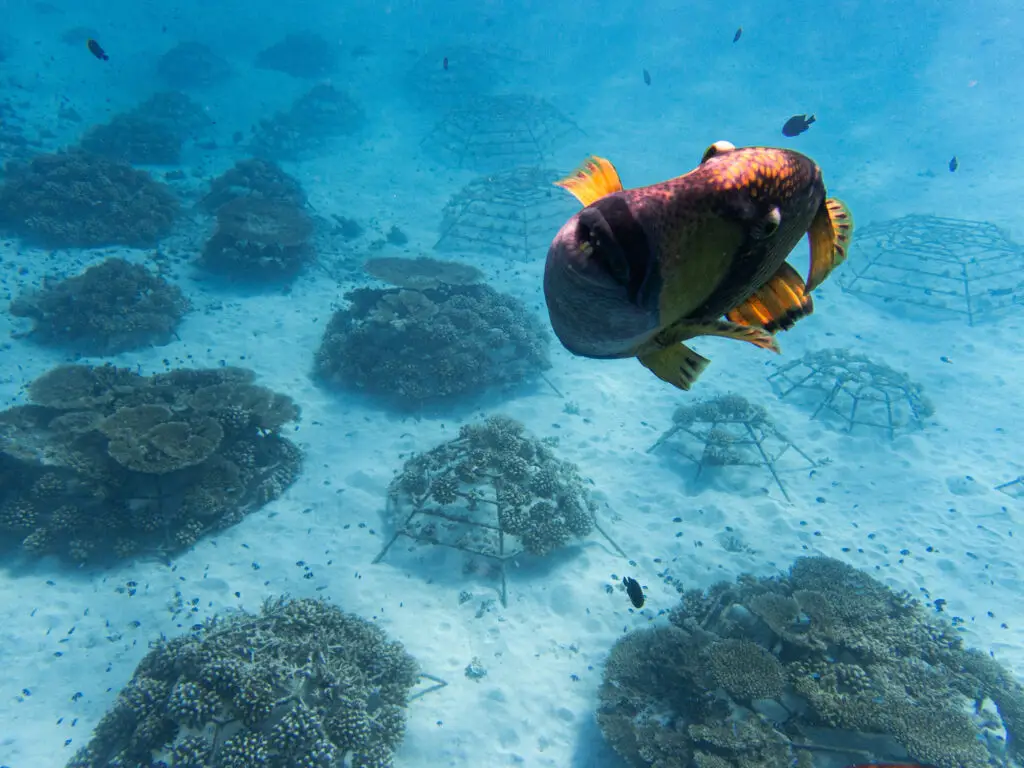Frequently Asked Questions (FAQ)

At The Coral Planters, we know that coral reef conservation can raise many questions, whether you’re a marine enthusiast, someone curious to learn more, or a future partner looking to get involved. That’s why we’ve gathered answers to the questions we receive most frequently.
Our mission is to make reef conservation accessible to everyone by promoting transparency about our actions and offering concrete ways to participate in this vital effort. By browsing this page, you’ll discover everything you need to know about our association, our projects, and how you can help us bring the oceans back to life.
If you have any further questions after reviewing this FAQ, please feel free to contact us via our contact form or social media. We would be happy to answer your questions and discuss ways we can protect our marine heritage together.
The Association and its Mission
What is The Coral Planters?
The Coral Planters is an association dedicated to raising awareness and restoring coral reefs through concrete actions such as coral planting, public outreach, and collaboration with local and international partners.
Where do you operate?
We work primarily in France for our awareness-raising activities but also around our restoration areas. Our restoration projects are currently located in the Maldives, Rodrigues, and Mozambique.
How are you funded?
Our funding comes from donations, coral adoptions, our corporate partners, and grants.
Why are corals so important?
Corals shelter 25% of marine biodiversity, protect coastlines from erosion, and support millions of human communities through fishing and tourism.
Restoration Projects
How do you plant corals?
We use modern techniques such as underwater nurseries and attaching coral fragments to artificial structures to help them grow.
What types of coral do you plant?
We favor local, more resilient species that are able to adapt to environmental changes.
How long does it take for coral to grow?
Coral growth depends on the species, but it can vary from a few millimeters to several centimeters per year.
What are the concrete results of your projects?
Every year, we replant more than 10,000 corals and contribute to the regeneration of several hectares of reef. Our efforts have also raised awareness among thousands of people through educational campaigns.
Coral Adoption
How does coral adoption work?
When you adopt a coral, you directly fund its planting and care. You also receive an adoption certificate with information about your coral.
Can I choose where my coral will be planted?
We determine locations based on local needs and optimal conditions for coral survival.
Can I come and see the coral I’ve adopted?
Yes, whenever possible, we organize visits for our donors to our planting sites.
Can my coral die?
Unfortunately, like any living organism, coral can be affected by unforeseen conditions. However, we do everything possible to maximize its chances of survival.
What is the adoption process?
The process is as follows:
- Adopt a coral and receive a digital certificate to share on social media;
- We fragment the coral species you choose from our list of heat-resistant colonies, place it on a structure or rope in our coral nurseries while we monitor its health and growth.
- Once mature, we fragment and replant this coral on the damaged reef to revitalize it and restore resilience to the entire ecosystem.
- We also send updates about our corals via our newsletters.
How can I gift a coral?
You can also adopt a coral for your loved ones by choosing a coral for them, adding a name to their adoption card, and providing their email address so they can receive the card and subsequent updates about their coral.
The Environment and Coral Reefs
What are the main threats to coral reefs?
Coral reefs are threatened by bleaching linked to global warming, pollution, overfishing, and ocean acidification.
What can I do to help?
You can reduce your carbon footprint, avoid products that are toxic to the oceans (like certain sunscreens), and support organizations like ours.
Can coral reefs regenerate on their own?
Under certain conditions, yes. However, the current degradation is so rapid that human intervention is necessary to give them a boost.
Will coral reefs disappear?
If nothing is done, many reefs could disappear by 2050 (source: IPCC). But with concrete actions, we can reverse the trend.
Commitment and Volunteering
Can I volunteer with The Coral Planters?
Yes, we welcome volunteers to help us in the field or remotely. Contact us to learn more.
What are the benefits of partnering with your organization?
Our partners benefit from increased visibility, an environmentally conscious image, and the satisfaction of contributing to a vital cause.
Can I organize a fundraiser for you?
Absolutely! We encourage local and individual initiatives to support our projects.
How can I contact you for more information?
You can reach us via our contact page, by email, or on our social media. We will be happy to answer your questions.

